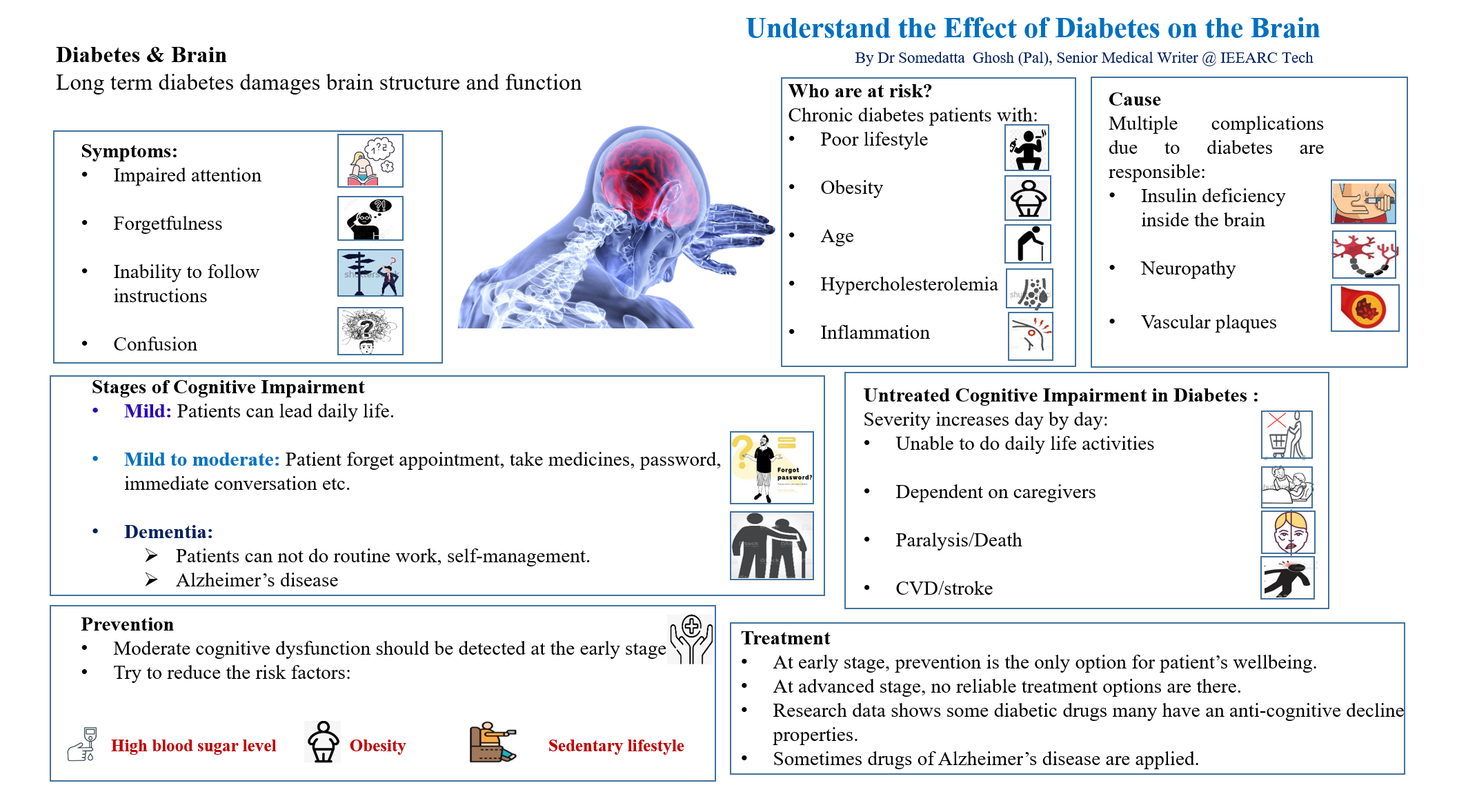Understand the Effect of Diabetes on the Brain
A review article by
In today’s world, diabetes is marked as the “modern epidemic”. Earlier diabetes meant only hyperglycaemia, insulin resistance, and relative insulin deficiency. But the modern healthcare industry gives immense importance to increasing diabetes-related complications: obesity, cardiovascular disease, retinopathy, nephropathy (chronic kidney disease), neuropathy, micro and macrovascular problems, cognitive impairment, etc.
Still, now, our society lacks awareness of how this disease can affect each and every part of the human body. Even the human brain is also not spared by diabetes.
It is very common that long-term diabetic patients to suffer from little forgetfulness, reduced attention, mental flexibility, and speed. In most cases, they don’t become too dangerous. But in the case of uncontrolled diabetes, the effect on the brain can become life-threatening.
Diabetes means mostly insulin deficiency and insulin is famous for its role to control blood sugar levels. But it has some very important roles in the human brain which helps in brain growth and neuronal development.
These are significantly hampered in diabetes due to reduced insulin supply to the brain. As a result, the cognitive power of a diabetic patient gets disturbed. In the initial stage, the patient can manage his/her everyday responsibilities with mild forgetfulness. But if it is kept untreated, patients start to face problems in doing regular chores and self-management. In severe cases, it reaches dementia. Patients fail to remember or understand the instructions and become dependent on caregivers.
Diabetes can accumulate plaques inside the blood vessels of the brain and reduce blood flow. Thus brain cells get less oxygen through the blood and die. It also affects the brain’s ability to understand, process, and integrate information. On the other hand, it increases the chance of heart attack, and ischemic stroke in diabetics.
Monitoring sugars is vital for your brain health
It’s critical to keep a closer eye on your blood sugar levels than ever whether you’re sick or just don’t feel like eating much. How frequently depends on your medication regimen and whether you have Type 1 or Type 2 diabetes.
Let’s understand the data-driven diabetes patient care
Begin Your Digital Screening in one click

Comments are closed